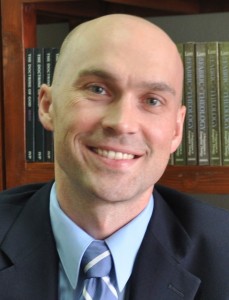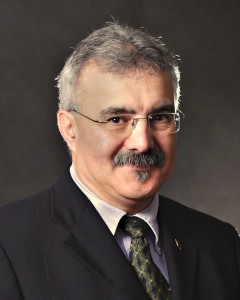Part I of a review article of Peter J. Morden, The Life and Thought of Andrew Fuller (1754–1815) (Studies in Evangelical History and Thought; Milton Keynes, Buckinghamshire: Paternoster, 2015), xxii+232 pages.
 In this year, the bicentennial of the death of the significant Baptist pastor-theologian Andrew Fuller, it is right and proper to have an academic biography of the English Evangelical leader. And this new work by the Vice-Principal of Spurgeon’s College nicely fits the bill. Having already written extensively on Fuller—see especially his Offering Christ to the World: Andrew Fuller (1754–1815) and the Revival of Eighteenth Century Particular Baptist life (2003)—Morden is well equipped to write this biographical study.
In this year, the bicentennial of the death of the significant Baptist pastor-theologian Andrew Fuller, it is right and proper to have an academic biography of the English Evangelical leader. And this new work by the Vice-Principal of Spurgeon’s College nicely fits the bill. Having already written extensively on Fuller—see especially his Offering Christ to the World: Andrew Fuller (1754–1815) and the Revival of Eighteenth Century Particular Baptist life (2003)—Morden is well equipped to write this biographical study.
After a brief introductory chapter that sets out the current state of Fuller studies and lays bare Morden’s own Evangelical convictions, chapter 2 details Fuller’s early life in the context of the 18th-century Particular Baptist community of which he was a part. This is well-trodden ground, but Morden does well in establishing the larger historical context and then examining Fuller’s own narrative about his conversion. With regard to Fuller’s conversion and early Christian experience, scholars are dependent for their information upon some letters Fuller wrote between 1798 and 1815: two to a Scottish friend Charles Stuart, then one in 1809, and then finally two more at the close of his life to “an unnamed friend in Liverpool” (so Morden names the correspondent, page 33, n.122). The “unnamed friend in Liverpool” was actually Maria Hope, the sister of Samuel Hope (1760–1837), a well-known Liverpool banker and extremely wealthy. They both had links to the Baptist cause at Byrom Street, Liverpool, and he was a strong supporter of the Baptist Missionary Society. Morden stresses that Fuller’s narrative of his early life in these letters, which were written between thirty and forty-five years after the events they describe, reveal a man deeply shaped by the contours of 18th-century Evangelicalism.
Chapter 3 charts Fuller’s entry into pastoral ministry in the 1770s and his theological development during that decade and the one that followed, which saw the publication of his first major work, The Gospel Worthy of All Acceptation (1785/1801). This book was the definitive response to the High Calvinism that dominated far too many Particular Baptist circles in the British Isles and that had been hegemonic in Fuller’s own Baptist experience up until his conversion. Making good use of various unpublished manuscripts, Morden delineates not only the argument of the book, but also why Fuller left behind this version of Calvinism, which Fuller later castigated as “false Calvinism.” The latter Morden locates in Fuller’s biblicism (almost definitely the major reason from Fuller’s own point of view), his reading of Puritan literature and especially that of his older contemporary Jonathan Edwards, and his friendship with like-minded pastor-theologians like John Ryland, Jr. and John Sutcliff of Olney. Again Morden stresses that by the time Fuller published his Gospel Worthy of All Acceptation, the core tenets of 18th-century Evangelicalism, shared by men of widely-differing ecclesial convictions, were now his (p.67).
The shape of Fuller’s ministry at Kettering, where he moved in 1782, and the way Fuller answered various attacks on the theology of The Gospel Worthy of All Acceptation constitutes Chapter 4. Morden helpfully touches on some aspects of Fuller’s life hitherto rarely examined, such as Fuller as a man of prayer. What Fuller told Robert Fawkner at the latter’s ordination in 1787, he sought to make a reality in his own life: “Give yourself up to the word of God, and to prayer” (cited p.74). This chapter also breaks new ground in Morden’s analysis of Fuller’s tendency to depression between 1782 and 1792 (p.103–109). Normally I am chary of trying to psychologically analyze men and women of previous generations; we often have difficulty enough trying to figure out what people sitting across from us are thinking let alone people of the past, which, to quote L.P. Hartley, “is a foreign country.” But Morden skillfully draws upon Fuller’s unpublished diary to argue his case. And Fuller himself once observed of himself, “I was born in a flat [i.e. minor] key” (cited Andrew Gunton Fuller, Andrew Fuller [London, 1882], 79).
To be continued.
Michael A.G. Haykin Professor of Church History The Southern Baptist Theological Seminary
To download the review as PDF, click here. To see other book reviews, visit here.





 Evan Burns (Ph.D., The Southern Baptist Theological Seminary) is on faculty at Asia Biblical Theological Seminary, and he lives in Southeast Asia with his wife and twin sons. They are missionaries with Training Leaders International. He also works as the Director of the M.A. in Global Leadership program at Western Seminary.
Evan Burns (Ph.D., The Southern Baptist Theological Seminary) is on faculty at Asia Biblical Theological Seminary, and he lives in Southeast Asia with his wife and twin sons. They are missionaries with Training Leaders International. He also works as the Director of the M.A. in Global Leadership program at Western Seminary.
 Steve Weaver serves as a Teaching and Research Associate with the Andrew Fuller Center for Baptist Studies and is a fellow of the Center. He also serves as senior pastor of Farmdale Baptist Church in Frankfort, KY. Steve and his wife Gretta have six children between the ages of 4 and 16.
Steve Weaver serves as a Teaching and Research Associate with the Andrew Fuller Center for Baptist Studies and is a fellow of the Center. He also serves as senior pastor of Farmdale Baptist Church in Frankfort, KY. Steve and his wife Gretta have six children between the ages of 4 and 16. Michael A.G. Haykin is the director of the Andrew Fuller Center for Baptist Studies. He also serves as Professor of Church History and Biblical Spirituality at Southern Baptist Theological Seminary. Dr. Haykin and his wife Alison have two grown children, Victoria and Nigel.
Michael A.G. Haykin is the director of the Andrew Fuller Center for Baptist Studies. He also serves as Professor of Church History and Biblical Spirituality at Southern Baptist Theological Seminary. Dr. Haykin and his wife Alison have two grown children, Victoria and Nigel.


 David E. Prince is the Pastor of Preaching and Vision at
David E. Prince is the Pastor of Preaching and Vision at 


